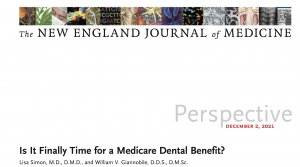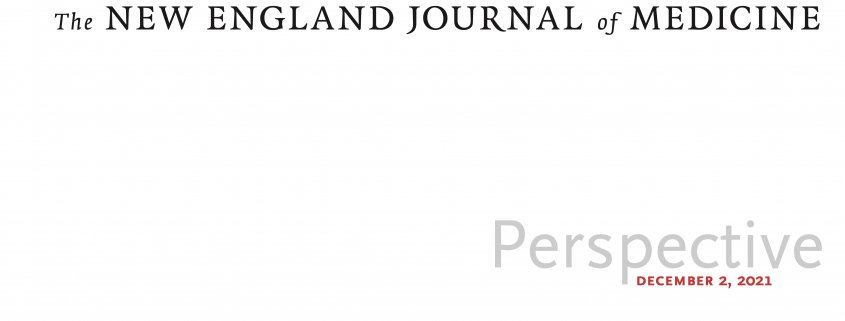Dental coverage in Medicare in the United States

See PDF of the article:
In a recent issue of N Engl J Med (December 2, 2021), the subject of Medicare dental coverage, currently excluded, and the many attempts to introduce it are discussed.
The article mentions that in 1958 the American Medical Association, the American Dental Association and other professional organizations created the Joint Council to Improve Health Care of the Aged, whose objective was to oppose the creation of what would later become Medicare (medical care public to those over 65 in the United States).
Despite that, Medicare was created in 1965, without dental care being covered. From this point of view we can say that the doctors lost, but the dentists won. Dental care continues to operate under a fee-for-service formula, with a high proportion of the cost of out-of-pocket money and with greater financial barriers than in other forms of health care.
After decades of attempts to cover dental care with Medicare, it appears that the American government is close to achieving this goal. There was a previous attempt in 2019 through a law passed in the House of Representatives, but rejected by the Senate. A law with similar claims was introduced in Congress in 2021, forming part of Joe Biden’s “reconciliation package.” The Centers for Medicaid and Medicare have already appointed a “chief dental officer.”
This time, the American Dental Association supports the introduction of dental care into Medicare, but only if it only covers people below 300% of the FPL (federal poverty level).
The health system in general is assuming the problems of the absence of dental coverage, in the form of millions of patients, including older adults, who present themselves in the emergency areas, hospitals and primary care for dental pain, a visit that generally concludes with the recommendation to go to a dentist, which many cannot afford. Untreated dental disease can lead to endocarditis, brain abscess, and mediastinitis.
Even if the law that includes dental care in Medicare is finally signed, many problems will remain to be solved, such as the need to enroll dental providers.
In any case, if this measure is finally introduced, it will have been a giant step in the improvement of American healthcare and, this time, with beneficial consequences for Europe and, specifically, for Spain, the country that dedicates the least public budget to dental care in European countries.










